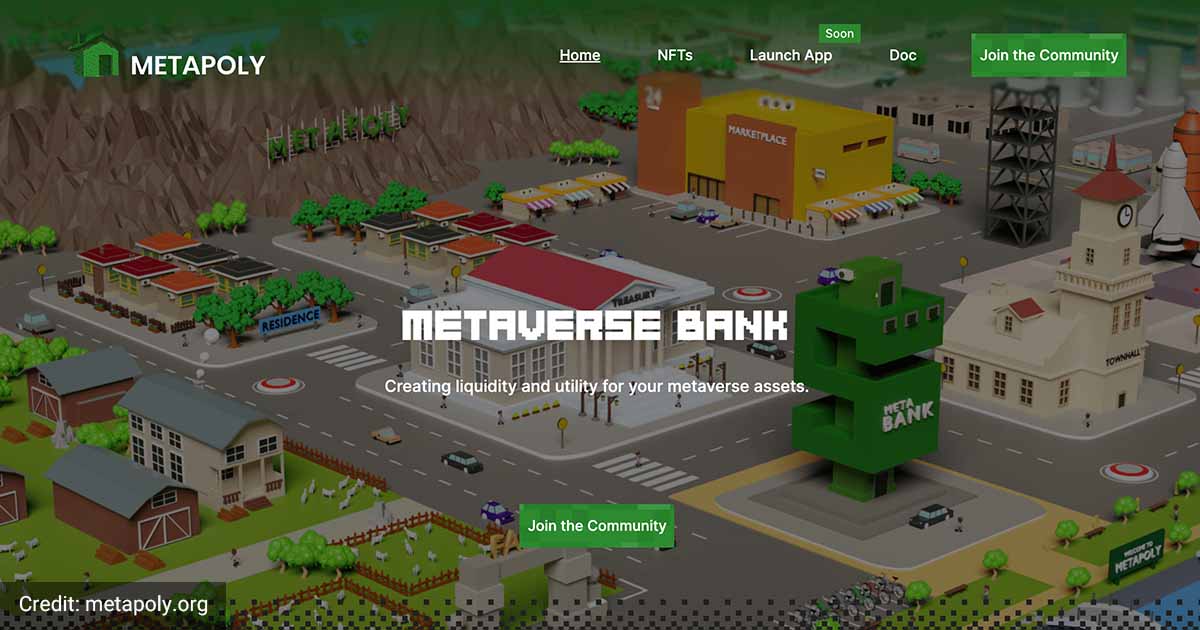The Origin Story of Metaverse Startup Metapoly

Last Updated: By TRUiC Team
You’ve likely heard talk about the “metaverse” — a virtual reality filled with persistent virtual worlds that continue to function even when you’re not actively playing. Some implementations of the metaverse can combine your physical reality with the digital world through what’s known as augmented reality (AR) technology.
As the metaverse continues to evolve, the goal is to allow players to buy, sell, and create goods in these virtual worlds and create a new thriving digital economy.
Metapoly is the very first decentralized metaverse land bank startup that aims to help general consumers drive investment in the metaverse. In short, Metapoly provides the infrastructure necessary to connect different metaverses together and allow ordinary people to own digital land and assets through full or fractional ownership.
Let’s walk through the origin of Metapoly, how the startup began, and what it did to grow to the point they’re at today.
Origin of the Startup Idea
The idea for Metapoly originally came from observing workers in China and how people over the age of 35 were being pushed out of jobs due to their lack of skills related to emerging technology industries.
Metapoly was built with these disenfranchised people in mind, helping them build a new community they feel they belong in and giving them the ability to vote on how that community is shaped. When people are empowered to find their voice in the metaverse, they’ll be able to find a sense of belonging and satisfaction, especially if they’re able to have investment exposure in these new virtual worlds.
The name “Metapoly” is a combination of the words “Metaverse” and “Monopoly.”
Since their company is positioning itself to be the metaverse land bank that’s backed by an asset-backed stablecoin, the wordplay with these two terms describes their vision and purpose to a tee.
Ultimately, Metapoly wants to become “the Blackrock of the metaverse, but decentralized and owned by a DAO.” DAOs, or “Decentralized Autonomous Organizations,” are communities that are led by their members and allow everyone to vote on how things should be. Instead of being controlled by a single centralized owner, a DAO allows the people to dictate the direction of their community.
Development of the Startup
Metapoly is currently focused on launching its protocol and building up awareness and initial traction about its community.
To start building support and getting the word out there, they’ve focused on influencer marketing and PR in order to grow brand awareness in the Web3 space. At the very beginning, the founders presented an IDO or “Initial Discord Offering”, where they provided an NFT sale to early supporters and sold out 300 Genesis NFTs in order to get early support and investment.
As they continue to grow and build awareness for Metapoly, they’re focused on getting support from individuals who are interested in the metaverse and want to have investment exposure to virtual land, even if they have a limited budget (through fractional ownership).
What’s Next for the Startup
As Metapoly continues to build awareness and start bringing together a community of avid supporters, its next biggest step is officially launching its protocol to the world.
To become fully decentralized, they have a goal of having at least 10,000 token holders in the near future.
Additionally, Metapoly aims to have as many metaverse projects as possible adopt and accept their stablecoin, $USM, which requires further outreach and collaboration with developers who are building new virtual worlds and communities.
Owning land and digital assets in the metaverse will soon be a possibility for everyone, and as the Web3 space continues to evolve and metaverse projects get released into the wild, Metapoly will continue to work on establishing its foothold in the space.
Next Steps:
- Check out Metapoly’s company profile, insights for aspiring entrepreneurs, and ways to support them!
- Hear startup stories from real founders on the Startup Savants podcast.
- Keep up with more startup companies by visiting our list of the top startups to watch.
- Form your own startup by reading our review of the best online incorporation services.
Tell Us Your Startup Story
Are you a startup founder and want to share your entrepreneurial journey with our readers? Click below to contact us today!


